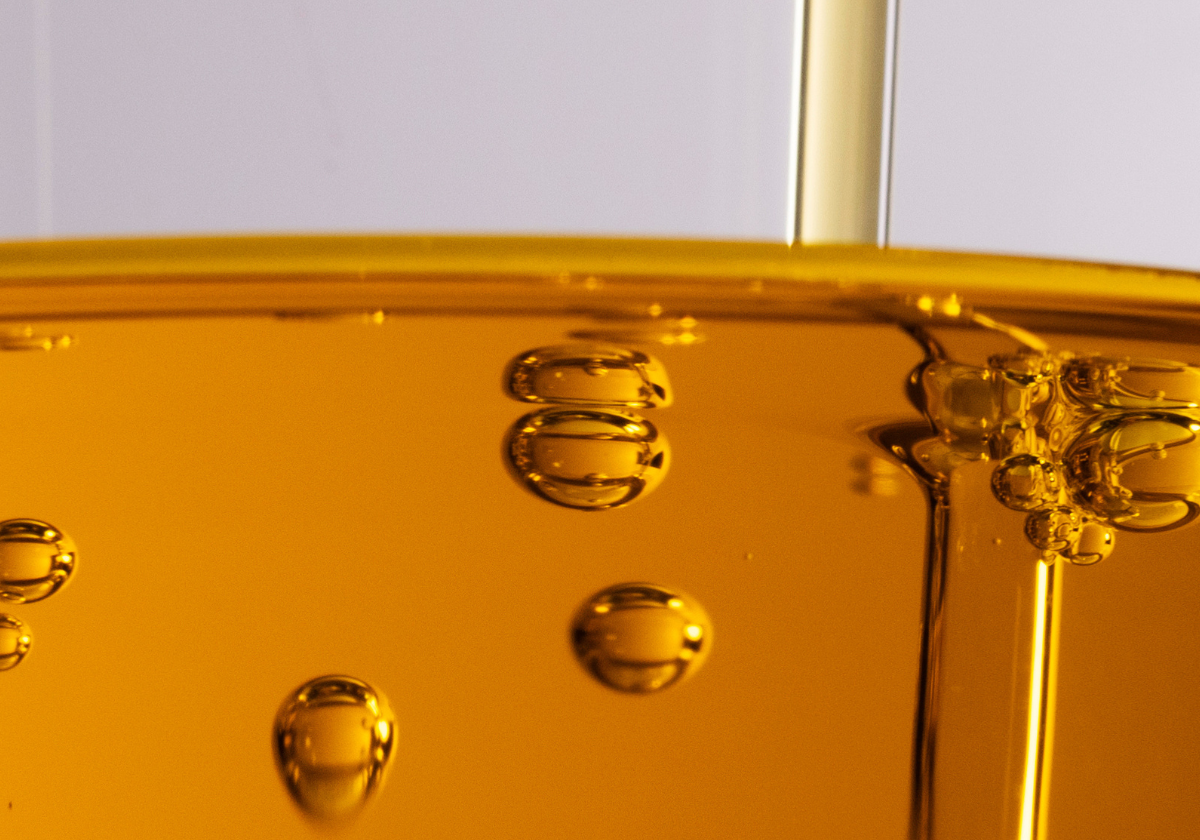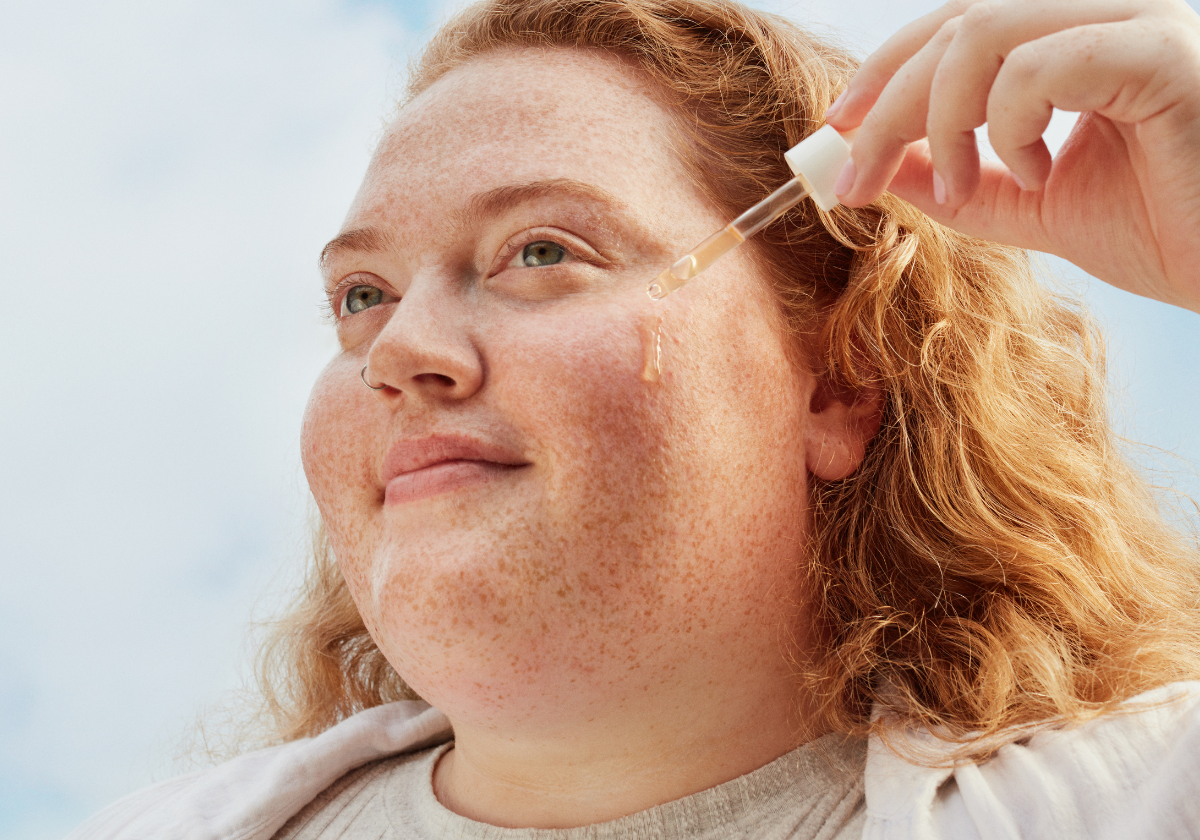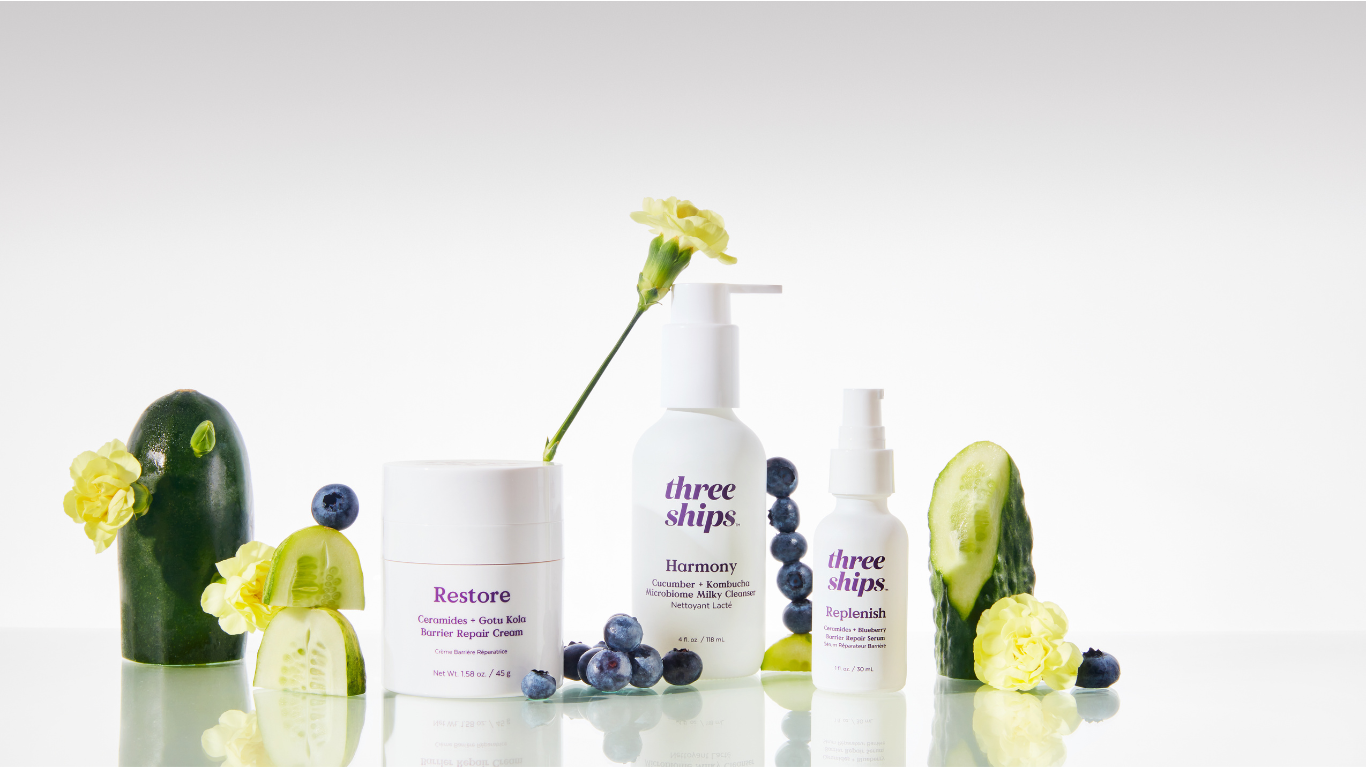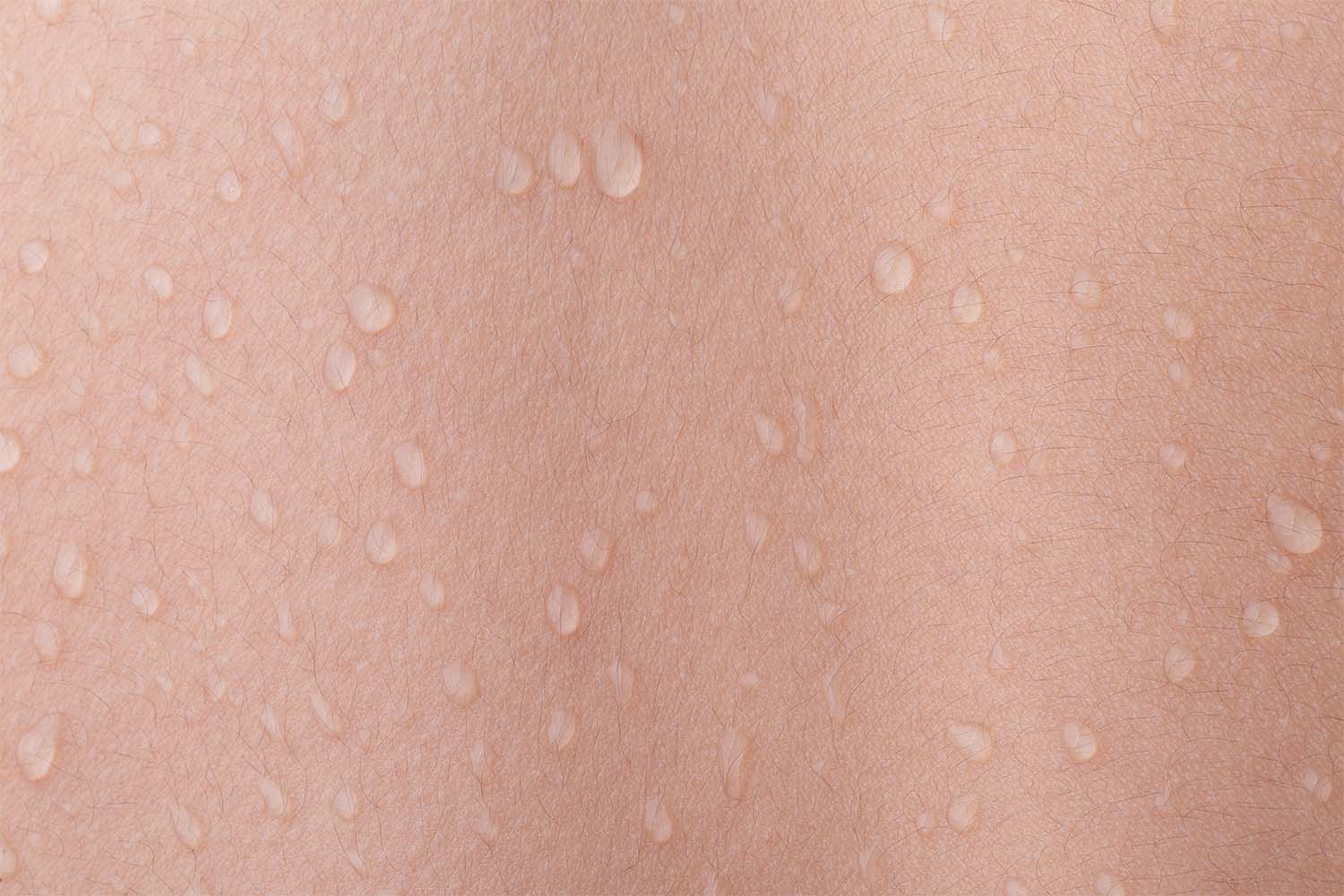What Causes Hypersensitive Skin and What Can You Do About It?

Do you experience irritation from skincare products, dehydration, or a flakey complexion? Chances are, you may have sensitive skin.
Hypersensitive skin is when your skin overreacts to various factors that would be tolerated by normal skin. Products such as cleansers, serums, and makeup cause your breakouts or develop red, itchy skin, although they are not typically considered “harsh” products in the health and beauty world.
What Is Hypersensitive Skin?
Common symptoms of hypersensitive skin include rashes, redness, itchiness, uneven skin tones or patchy skin, and dry or flaky skin. These symptoms can often be uncomfortable and prevent you from feeling your best, especially when you don’t know what’s causing your hypersensitivity.
Unlike mildly sensitive skin, hypersensitive skin reacts similarly to an allergic reaction you would get from a food allergy. Your skin would have an immediate or almost immediate reaction to your product.
Hypersensitivity isn’t an official diagnosis. In fact, those with moderate to severe skin conditions, like rosacea, likely consider their skin hypersensitive.
Symptoms and severity can vary from person to person, making diagnosing hypersensitive skin difficult. We recommend seeing a dermatologist if you believe you have hypersensitive skin.
What Causes Hypersensitive Skin?
In general, sensitive skin does not do well with external or internal aggressors. While hypersensitivity can be traced back to a compromised skin barrier, there are a few reasons the skin can become hypersensitive in the first place:
External Factors
External factors that may cause skin hypersensitivity to include:
- Skincare or makeup products containing harsh chemicals
- Harsh laundry detergents or household cleaners
- Spicy foods or alcohol consumption
- Exposure to secondhand smoke
- Swimming pools or other places where germs can be cross-contaminated
- Excessive use of exfoliants or facial scrubs
- Itchy or low-quality fabrics
- Fragrance
- Potent actives such as retinol, AHA, and BHA.
Environmental Factors
Examples of environmental factors that can cause hypersensitive skin are:
- Drastic changes in temperature
- Excessive exposure to UV rays
- Freezing temperatures or high winds
- Environmental pollutants
Psychological Factors
Psychology and emotions can also play a role in skin hypersensitivity. Some common psychological factors are:
- Stress and tension
- Low energy
Internal Factors
Some individuals have a naturally weaker skin barrier. Just as we may have oily or acne-prone skin, we all have different skin types. Other causes of skin hypersensitivity may include skin conditions, such as eczema, contact dermatitis, and rosacea.
Consider taking an allergy test to narrow down what factors may be triggering your skin. Many people with hypersensitive skin will record what they eat, use to clean with and come in contact with to determine what factors they are exposed to at the time of flare-ups.
How Else Can You Protect My Sensitive Skin?
Protecting your skin from various types of harmful weather can greatly reduce how often your skin can flare up from the cold, wind, and UV exposure.
There are various ways you can prevent irritating your hypersensitive skin, including avoiding potentially harmful ingredients, having a proper skincare routine that nourishes and protects your skin, and even taking dietary supplements to help strengthen your skin from the inside out.
Go Back to Basics
Give your skincare routine an update and go back to the basics. Keep it minimal and simple by avoiding harsh ingredients that may strip your skin barrier and use a daily journal and take note of everything you’ve eaten or have been exposed to.
Avoiding Harmful Ingredients
Many ingredients found in skincare and makeup products can often do more harm to your skin than good. Some of the common ingredients that may be provoking your hypersensitive skin may include:
- Alcohol
- Essential Oils
- Chemical Sunscreens
- Harsh Exfoliants
- Sulfates
- Fragrance
While it won’t be easy to avoid these harmful ingredients altogether, try avoiding them for a few weeks and see if you notice any changes in your skin.
Monitor Natural or Artificial Fragrances
While often appealing when applying a product, fragrances can often irritate your skin. Many of them are synthetically made in a lab with harsh chemicals or contain essential oils that can be too pure for hypersensitive skin and cause a reaction.
Many products claim to be “fragrance-free” but are often only actually free from artificial fragrances. Look out for words like “parfum” or “(for fragrance)” on the ingredient list of your products.
Learn More About Preservatives
Many skincare products contain preservatives to maintain the freshness and shelf life of the product, but many of these preservatives are harmful to skin. They can actually cause health issues when used too much.
Common preservatives to avoid are formaldehyde, ureas, DMDM hydantoin, quaternium-15, and butylated hydroxyanisole. Luckily, there are plenty of preservatives that are safe to use on your skin while still maintaining the shelf life of the product.
Use Cleaner Alternatives To Chemical Sunscreens
That’s right. Not all sunscreen is the best protection for your skin. Chemical sunscreens such as oxybenzone can actually cause further irritation to the skin. However, this does not mean that you shouldn’t be using an SPF in your skincare routine.
Mineral-based sunscreens, such as zinc oxide and titanium dioxide, are much gentler and easier to tolerate, so these can be a good choice if you have hypersensitive skin.
Exfoliants and Peels
If you have hypersensitive skin, you probably aren’t scrubbing or exfoliating three times a week. But if you are, it’s essential to know that many exfoliants can be extremely harmful to hypersensitive skin.
Because exfoliants are designed to aggressively scrub away dirt and dead skin cells – it can end up causing redness, swelling, and discomfort.
Peels can also irritate your skin as they strip away natural oils and ceramides in your skin which are needed to help protect it from environmental factors. Chemical, charcoal, and even seemingly “gentle” peels can often have the opposite effect for those with hypersensitive skin.
Reduce Daily Stress
We know it’s often easier said than done but try practicing relaxation and stress management methods if you notice that your hypersensitive skin gets worse at times of extreme stress. Meditating, reading, warm baths (remember: not too hot and not too long!) can help bring a calming sensation over you and reduce stress-induced breakouts.
Stay Hydrated and Support Your Skin Barrier
Keeping your face clean and hydrated can dramatically affect your hypersensitive skin. This goes beyond just moisturizing your face, though. In addition to drinking at least eight glasses of water per day, look for barrier-supporting products like gentle botanicals, aloe, and biotic ingredients.
How To Create a Skincare Routine for Hypersensitive Skin
Having a great skincare routine is another way to help protect your skin from irritants and prevent future flare-ups and breakouts. After ruling out products with harmful ingredients, start choosing products catered towards sensitive skin to keep you looking and feeling fresh.
When it comes to hypersensitive skin, less is always more. However, this does not mean that you should skip out on products that your skin absolutely needs. Products such as moisturizers and SPF, should always be included in your skincare routine to maintain your skin’s integrity.
SPF Protection
Having a good SPF in your skincare routine is crucial to avoiding damage from UV rays that can affect hypersensitive skin and reduce premature skin aging, sun spots, fine lines, and wrinkles.
Cleanser
This may seem obvious, but the type of cleanser you use is almost as important as having any cleanser at all.
For hypersensitive skin, having a cleanser that can remove dirt and bacteria without stripping or irritating your skin will change your skincare game big time.
When it comes to cleansing, harder doesn’t mean better.
Many people with hypersensitive skin opt for non-irritating gel cleanser, such as our Purify Aloe + Amino Acid Cleanser, which is super gentle on your skin and hard on dirt.
Moisturizer
Having the right kind of moisturizer for hypersensitive skin can help protect and soothe your skin if it has shown signs of irritation.
Our Radiance Grape Stem Cell + Squalane Day Cream contains ingredients such as grape stem cell extra, squalane, and bark extract blend that can help soothe your skin and retain your skin’s natural moisture to prevent future flare-ups.
Face Masks
While not for everyday usage, having a nice face mask to treat your skin when it’s been irritated can help reduce the redness and itchiness brought on from a hypersensitivity reaction. Avoid any peel-off or exfoliating masks as these may cause further irritation.
Our Soothe Rosehip Vitamin C Clay Mask can be great for hypersensitive skin as it has clay powders that don’t strip the skin and protect your skin’s lipid barrier. Simply mix ½ tbsp. of the mask with a few drops of water or toner to create a thin paste. Let dry for about ten minutes and rinse with lukewarm water.
Dietary Supplements That May Help Sensitive Skin
If you’re worried about new products making your hypersensitive skin worse, there are a variety of natural remedies and dietary supplements that you can try as an alternative.
Some of the best supplements that may help with your skin include:
Biotin
Also known as B7, biotin is a water-soluble, B-complex vitamin that may support your skin’s ability to retain moisture. Biotin has been shown to strengthen your skin barrier, which can help reduce acne breakouts and clear up blackheads and pimples.
Collagen
While your body already has natural collagen, adding a collagen supplement may help to boost your skin’s durability and reduce sensitivity. Collagen also contains hydroxyproline, an amino acid that helps your skin increase moisture levels, which can help your skin stay well hydrated.
The Bottom Line
We get it, hypersensitive skin can be tricky to navigate – but it doesn’t have to be!
Three Ships clarifies the complicated to help you see skincare clearly. Our range is plant-based and scientifically proven to provide beautiful results for every skin type.
Effective, natural, simple. The way skincare should be.
Sources:
Skin care for acne-prone skin - InformedHealth.org | NCBI Bookshelf
- Tags: rec1:radiance-grape-stem-cell-squalane-day-cream rec2:soothe-rosehip-vitamin-c-clay-mask Skin Education
0 comments





